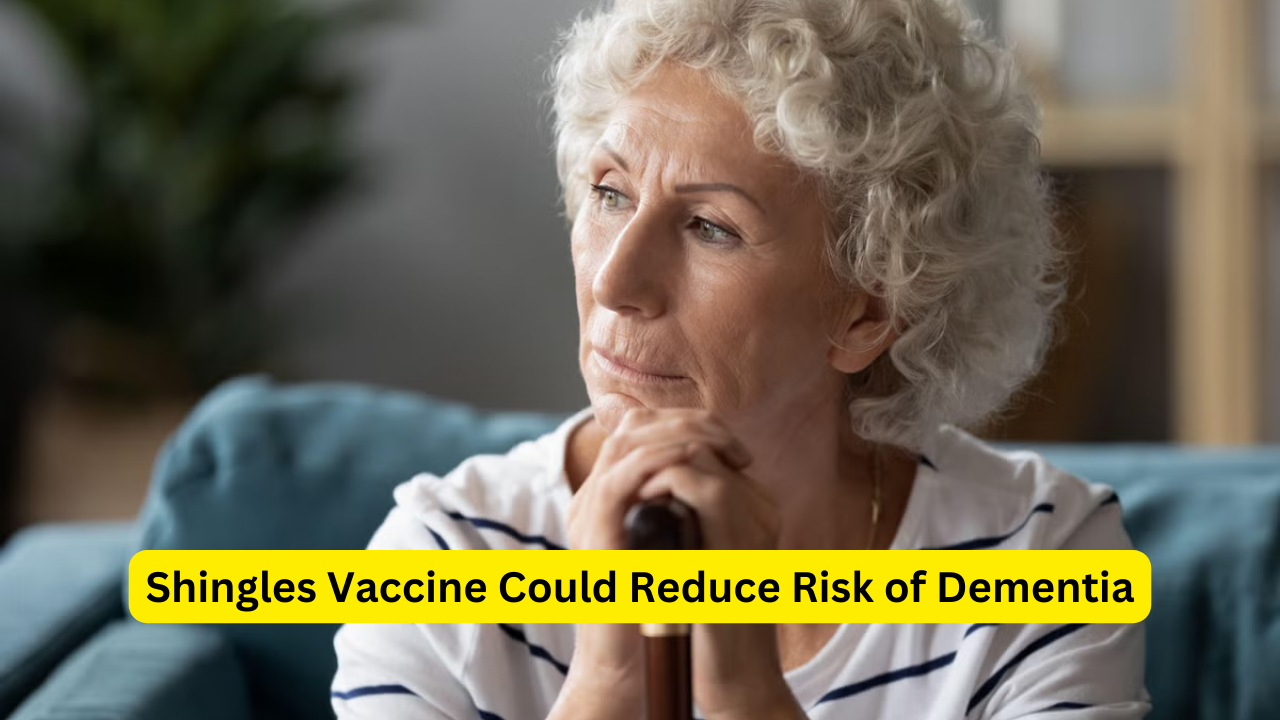Shingles Vaccine Could Reduce Risk of Dementia

Shingles Vaccine Could Reduce Risk of Dementia. Dementia is a growing concern globally, affecting millions of individuals and their families. Recent research conducted by the University of Oxford has revealed promising news: a new shingles vaccine may significantly reduce the risk of dementia. The study, which followed over 200,000 people, found that this recombinant shingles vaccine led to at least a 17% reduction in dementia diagnoses within six years post-vaccination. This equates to 164 or more additional days lived without dementia. Let’s dive into the details of this groundbreaking discovery and its potential implications.
Understanding Shingles and Dementia
What is Shingles?
Shingles, also known as herpes zoster, is a painful skin rash caused by the reactivation of the varicella-zoster virus, the same virus that causes chickenpox. After a person recovers from chickenpox, the virus remains dormant in the body and can reactivate years later, leading to shingles. The condition is characterized by a painful rash that can affect any part of the body, but most commonly appears as a stripe of blisters on one side of the torso.
What is Dementia?
Dementia is an umbrella term for a set of symptoms affecting cognitive functions, including memory, thinking, and social abilities, severely enough to interfere with daily life. Alzheimer’s disease is the most common type of dementia, but there are other forms such as vascular dementia, Lewy body dementia, and frontotemporal dementia. The exact cause of dementia varies depending on the type, but it generally involves damage to the brain cells.
The Connection Between Shingles and Dementia
The Role of Inflammation
Inflammation is a key factor in the development of many chronic diseases, including dementia. Shingles causes significant inflammation in the body, which could potentially contribute to the development or worsening of dementia. Chronic inflammation can damage brain cells and disrupt communication between neurons, leading to cognitive decline.
Impact of the Shingles Vaccine
The new recombinant shingles vaccine has been shown to reduce inflammation caused by the varicella-zoster virus. By preventing shingles outbreaks, the vaccine helps to lower overall inflammation levels in the body, which in turn may reduce the risk of developing dementia. The University of Oxford study supports this theory, demonstrating a significant reduction in dementia diagnoses among those who received the vaccine.
Details of the University of Oxford Study
Study Design and Population
The study conducted by researchers at the University of Oxford involved over 200,000 participants aged 50 and above. The participants were divided into two groups: those who received the new recombinant shingles vaccine and those who did not. The researchers followed these individuals for six years to monitor the incidence of dementia diagnoses.
Key Findings
The study found that participants who received the shingles vaccine had a 17% lower risk of being diagnosed with dementia compared to those who did not receive the vaccine. This significant reduction suggests that the shingles vaccine not only protects against shingles but also offers neuroprotective benefits. The reduction in dementia risk translates to an average of 164 or more additional days lived without dementia.
Implications of the Findings
These findings have profound implications for public health. If widely adopted, the shingles vaccine could become a critical tool in the fight against dementia. The potential to delay or prevent the onset of dementia would not only improve the quality of life for millions of individuals but also reduce the economic burden associated with dementia care.
How the Shingles Vaccine Works
Recombinant Technology
The new shingles vaccine, known as Shingrix, uses recombinant technology. Unlike the older live-attenuated vaccine, the recombinant vaccine contains a non-live antigen, which means it does not contain the live virus. Instead, it includes a glycoprotein found on the surface of the varicella-zoster virus, combined with an adjuvant to boost the body’s immune response.
Enhanced Immune Response
The adjuvant system in Shingrix enhances the immune response, making it more effective in preventing shingles outbreaks. This strong immune response not only protects against the immediate threat of shingles but also helps to modulate inflammation levels in the body, contributing to the observed reduction in dementia risk.
Recommendations for Vaccination
Who Should Get Vaccinated?
The shingles vaccine is recommended for adults aged 50 and older. It is particularly important for individuals with weakened immune systems or chronic health conditions, as they are at higher risk for shingles and its complications. The vaccine is administered in two doses, with the second dose given two to six months after the first.
Benefits Beyond Shingles Prevention
In addition to preventing shingles, the vaccine’s potential to reduce dementia risk makes it a valuable tool for older adults. The additional benefits of improved cognitive health and reduced inflammation further support the recommendation for widespread vaccination.
Conclusion
The discovery that the new shingles vaccine could reduce the risk of dementia is a significant advancement in both infectious disease prevention and cognitive health. The University of Oxford study provides compelling evidence that vaccinating against shingles can have far-reaching benefits beyond preventing painful rashes. By reducing inflammation and potentially delaying the onset of dementia, the shingles vaccine offers hope for millions seeking to maintain their cognitive health as they age.




